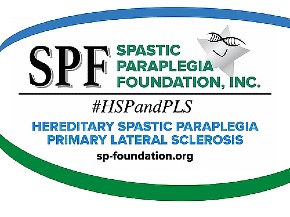-
ClinicalTrials.gov is a database of privately and publicly funded clinical studies conducted around the world. Explore 330,850 research studies in all 50 states and in 209 countries.
ClinicalTrials.gov is a resource provided by the U.S. National Library of Medicine. -
The National Institutes of Health (NIH) Clinical Center Search the Studies site is a registry of publicly supported clinical studies conducted mostly in Bethesda, MD.
-
Answer some questions and how far you are willing to travel. It's EASY!
Hereditary Spastic Paraplegia Genomic Sequencing Initiative (HSPseq)
Sponsor: Boston Children's Hospital
Collaborator: Boston Children's Hospital - Children's Rare Disease Cohorts Initiative
Information provided by (Responsible Party): Darius Ebrahimi-Fakhari, Boston Children's Hospital
Brief Summary:
The purpose of the HSP Sequencing Initiative is to better understand the role of genetics in hereditary spastic paraplegia (HSP) and related disorders. The HSPs are a group of more than 80 inherited neurological diseases that share the common feature of progressive spasticity. Collectively, the HSPs present the most common cause of inherited spasticity and associated disability, with a combined prevalence of 2-5 cases per 100,000 individuals worldwide.
In childhood-onset forms, initial symptoms are often non-specific and many children may not receive a diagnosis until progressive features are recognized, often leading to a significant diagnostic delay. Genetic testing in children with spastic paraplegia is not yet standard practice. In this study, the investigators hope to identify genetic factors related to HSP. By identifying different genetic factors, the investigators hope that we can develop better treatments for sub-categories of HSP based on cause over time.
Click here for clinical trial information
CAPTURE ALS is looking for patients with ALS, PLS, PMA, and ALS-FTP
Linda Lafontaine - PLS Canadian Study
C-BIG in Montreal conducting a study for ALS called CAPTURE ALS and they are looking for patients with ALS or related neurodegenerative disorders including ALS-Frontotemporal Dementia (ALS-FTD), Primary Lateral Sclerosis (PLS), Progressive Muscular Atrophy (PMA) or asymptomatic individuals. This is a study of ALS and related disorders' biomarkers and PLS is one of these!
There are four recruiting campuses - and they are recruiting NOW:
Edmonton (University of Alberta)
8440 112 St NW, Edmonton, AB, Canada, T6G 2B7Montreal (Montreal Neurological Institute and Hospital – Clinical Research Unit)
3801 University Street, Suite 207, Montreal, QC, Canada, H3A 2B4Toronto (Sunnybrook Health Sciences Centre)
2075 Bayview Ave, U-wing, ground floor, Room UG35, Toronto, ON, Canada, M4N 3M5Québec City (CHU de Québec-Université Laval, Hôpital Enfant-Jésus)
1401, 18e Rue, P-0145, Quebec City, QC, Canada, G1J 1Z4
There are two kinds of participants:
healthy participants - required to travel twice a year
affected participants - required to travel four times a year
INCLUSION CRITERIA
Patients:
-Has ALS or a related neurodegenerative disorder (including ALS-FTD, PLS, and PMA), or asymptomatic individuals with a known ALS mutation.
-Be of the age of majority in their province of residence/treatment
-Have the cognitive capacity to provide informed consent.
-Have proficiency in EN or FR (for study instructions and questionnaires)
Healthy Controls:
-Be between the ages of 40-80 unless age- and sex-matched to an enrolled patient participant (+/- 3 years).
-Have the cognitive capacity to provide informed consent.
-Have proficiency in EN or FR (for study instructions and questionnaires)
EXCLUSION CRITERIA
Patients:
-Ineligible for an MRI due to a pacemaker or other contraindication according to local MRI policies (also being unable to lie flat for an hour due to excessive saliva, etc.)
Healthy Controls:
-A history of a neurological disease including CNS disease (e.g., stroke, head injury, epilepsy) and PNS disease (e.g., neuropathy, myopathy)
-unfortunately, because Hereditary Spastic Paraplegia is a neurological condition it is exclusionary for CAPTURE ALS
-A history of a psychiatric disease (e.g., depression, bipolar disease) that is clinically diagnosed and/or with the current use of psychiatric medications (e.g., antidepressants) for an indication of a psychiatric disease.
-Ineligible for an MRI due to a pacemaker or other contraindication according to local MRI policies
This program is open to INTERNATIONAL participation but travel costs are to be determined on a case by case basis. Normally, $25 per visit is provided for participation. However, if the transportation cost is higher than $25, each site can request for more upon national Principal Investigator’s approval.
More details: Website specific to CAPTURE ALS: CLICK HERE
